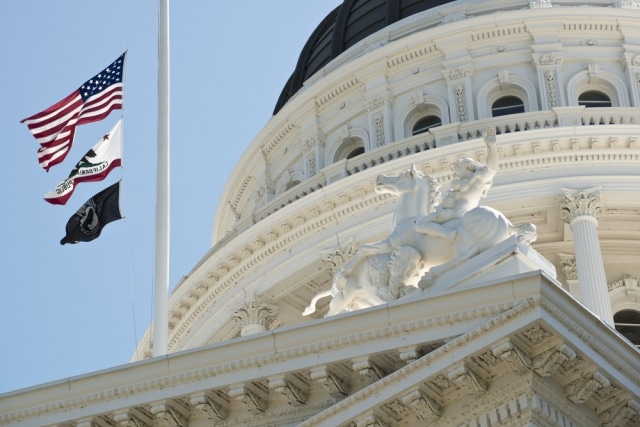The fallout from California officials’ failure to properly oversee the disposal of oil industry wastewater continued this week as lawmakers grilled officials with the state’s oil and gas regulatory agency for two hours while seeking assurances that they were getting the problem under control.
According to the LA Times, state senators “called the agency’s historic practices corrupt, inept, and woefully mismanaged.”
Senator Hannah-Beth Jackson (D-Santa Barbara), who said that reading the background materials ahead of the hearing “caused her blood pressure to soar,” per the Times, pretty much nailed it when she said, “There has been a serious imbalance between the role [of] regulating the oil and gas industry and the role of protecting the public.”
DeSmog helped break the initial story in this ongoing saga last year when 11 underground injection wells were ordered to shut down over fears they were pumping toxic and carcinogenic chemical-laden wastewater from fracking and other oil production processes into groundwater aquifers protected under federal law. Last week, 12 more injection wells were shut down for the same reason.
In the intervening months, the true extent of the problem has slowly come to light. It was revealed in February that regulators at California’s Division of Oil, Gas, and Geothermal Resources (DOGGR) wrongfully issued permits for close to 500 wells to inject oil industry wastewater into aquifers containing water that is useable or could be made useable—water that is badly needed in drought-stricken California and should have been protected under the federal Safe Drinking Water Act.
Later, in a letter to the U.S. Environmental Protection Agency, which first discovered the problems with DOGGR’s oversight of California’s Underground Injection Control Program back in 2011, the state regulators said that they were investigating as many as 2,000 wells that had been permitted to inject fluids from “enhanced oil recovery techniques” like acidization, cyclic steam injection and fracking into protected aquifers.
The bad news for Californians just keeps on coming. Ahead of this week’s state senate hearing, which also included officials from the California Department of Conservation and the state Water Resources Control Board in the hot seat, DOGGR released documents that show permitting wastewater injection into protected aquifers is not the only ongoing violation of the public trust it has committed.
According to the Center for Biological Diversity, “California’s troubled oil agency routinely approves high-pressure steam injections into oil wells that fracture rock formations, violating the law and increasing the risk of water pollution and deadly sinkhole accidents like a 2011 incident that killed a Kern County oil worker.”
“Gov. Brown’s oil regulators are rubberstamping high-pressure steam injections that can pollute our water and cause horrific accidents,” Kassie Siegel of the Center for Biological Diversity said in a statement. “This shows once again that state officials have ignored the law and haven’t protected California’s precious aquifers from toxic oil waste.”
Half of all new wells in California use fracking as an oil recovery technique, so it’s especially worrisome that dangerously high levels of toxic and cancer-causing chemicals like benzene, toluene and chromium-6 have been found in fracking flowback, a fluid that rises to the top of fracked wells and is becoming an increasingly prevalent component of oil industry wastewater.
A coalition of over 150 environmental and public advocacy organizations have submitted a legal petition calling on California Governor Jerry Brown to use his emergency powers to declare a moratorium on fracking in the state, at least until there is certainty that the massive oil industry waste stream can be managed properly.
To date, only 23 of the offending injection wells have been closed, though DOGGR has acknowledged it broke the law by issuing permits to thousands others. At the state senate hearing this week, environmental groups submitted a petition signed by 22,000 Californians calling for the closure of the rest of the wells identified as potentially contaminating protected aquifers.
“Allowing oil companies to willfully violate federal law is completely unacceptable,” Andrew Grinberg, oil and gas program manager at Clean Water Action, said in a statement. “The Safe Drinking Water Act is intended to protect our current and future drinking water sources, but even as water becomes more scarce by the day, the state has decided it’s okay to let oil companies continue injecting toxic fluids into high quality groundwater.”
Image Credit: Michael Warwick / Shutterstock.com
Subscribe to our newsletter
Stay up to date with DeSmog news and alerts






